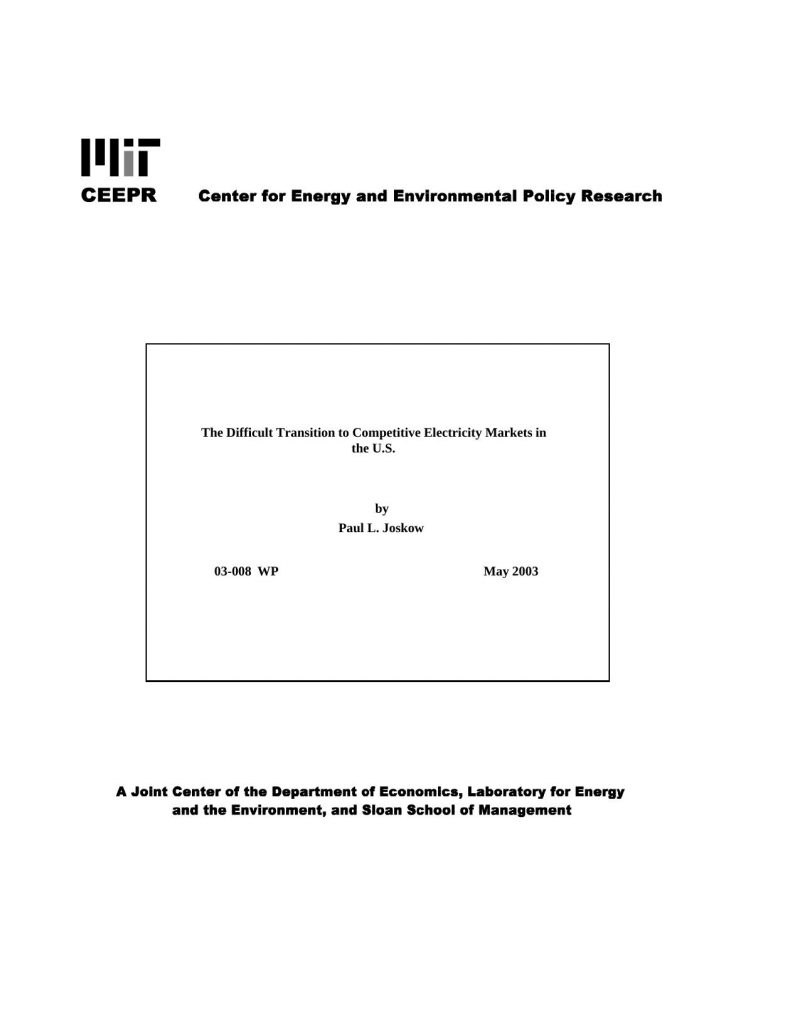The Difficult Transition to Competitive Electricity Markets in the U.S.
Paul L. Joskow
03-May
This paper provides a comprehensive discussion of the causes and consequences of state and federal initiatives to introduce wholesale and retail competition into the U.S. electricity sector between 1995 and the present. Information about the development of wholesale market institutions, the expansion of wholesale power trade, the performance of wholesale market institutions, the entry of merchant generating capacity, and the financial collapse of the trading and merchant generating sector is presented and discussed. Issues regarding the ability of evolving spot wholesale energy market institutions and market power mitigation mechanisms to provide adequate incentives for investment in new generating capacity in the absence of some form of peak capacity obligation are discussed theoretically and evaluated empirically. The diffusion of retail competition and the performance of retail competition programs in eight states is examined empirically. Imperfections in transmission governance arrangements and barriers to efficient expansion of the transmission network are identified. The analysis leads to the overall conclusion that the development of efficient competitive wholesale and retail electricity markets continues to be a work in progress and faces many technical, institutional and political challenges in the U.S. Suggestions for successfully confronting, or at least better understanding, these challenges are presented.



